Efficient and well-documented APIs are fundamental for seamless integration and utilization. Insomnia, a prominent HTTP client, offers a robust API documentation creation feature that empowers developers to construct informative guides.
To learn more about Apidog, click on the button below! 👇

This article delves into leveraging Insomnia's functionalities to create API documentation that is comprehensive and standardized, ultimately fostering a smoother development experience for consumers who wish to implement the associated API.
What is Insomnia?

Insomnia can be formally defined as a graphical HTTP client. It's a software application designed to simplify the testing, debugging, and interaction with web APIs. In simpler terms, it allows developers to send HTTP requests and analyze the responses visually, making the development process of web applications that rely on APIs more efficient.
Insomnia's Core Functionalities

Insomnia has emerged as a popular and powerful graphical HTTP client, empowering developers to streamline their workflow when working with APIs. Let's delve into the core functionalities it offers:
Crafting HTTP Requests with Precision
- Intuitive Interface: Insomnia provides a user-friendly interface for building HTTP requests. You can effortlessly specify the target URL, headers (containing authentication details if necessary), and the request body content.
- Action-Packed Verbs: Insomnia supports all the essential HTTP verbs, including GET (to retrieve data), POST (to create data), PUT (to update data), DELETE (to remove data), and more.
- Body Composition Freedom: Insomnia offers flexibility in crafting the request body. You can use various data formats like JSON, form data, or raw text, depending on the API's requirements.
Visualizing Responses for Clear Understanding
- Status Code Breakdown: Insomnia clearly displays the API's response status code, indicating success (e.g., 200 OK) or error (e.g., 404 Not Found).
- Header Decoded: The response headers, containing valuable information like content type and authentication tokens, are presented in a structured format for easy comprehension.
- Data Demystified: The response data itself is prominently displayed, often formatted for readability (like JSON being presented in a tree structure). This allows developers to quickly grasp the information returned by the API.
Managing Environments and Variables for Streamlined Testing
- Multiple Environments: Insomnia allows you to configure different API environments (development, testing, production) with distinct URLs and settings. This segregation ensures proper testing across various stages of the development lifecycle.
- Variable Vault: Store reusable variables like API keys or base URLs within Insomnia. This eliminates repetitive input and simplifies the process of crafting requests across environments.
Automating Tasks to Save Time and Effort
- Scripting Power: Insomnia's scripting capabilities empower developers to automate repetitive tasks. You can write scripts to perform actions like sending sequential requests or manipulating response data, saving significant time and effort.
In essence, Insomnia equips developers with a comprehensive toolkit for crafting well-defined HTTP requests, understanding API responses, managing different API environments, and automating repetitive tasks. This translates to increased efficiency, improved collaboration, and a streamlined development process when working with web APIs.
Steps Required to Make API Documentation Using Insomnia
Here are the steps required to start creating API documentation with Insomnia - it's free to make!
Step 1 - Sign Up on the Insomnia Website

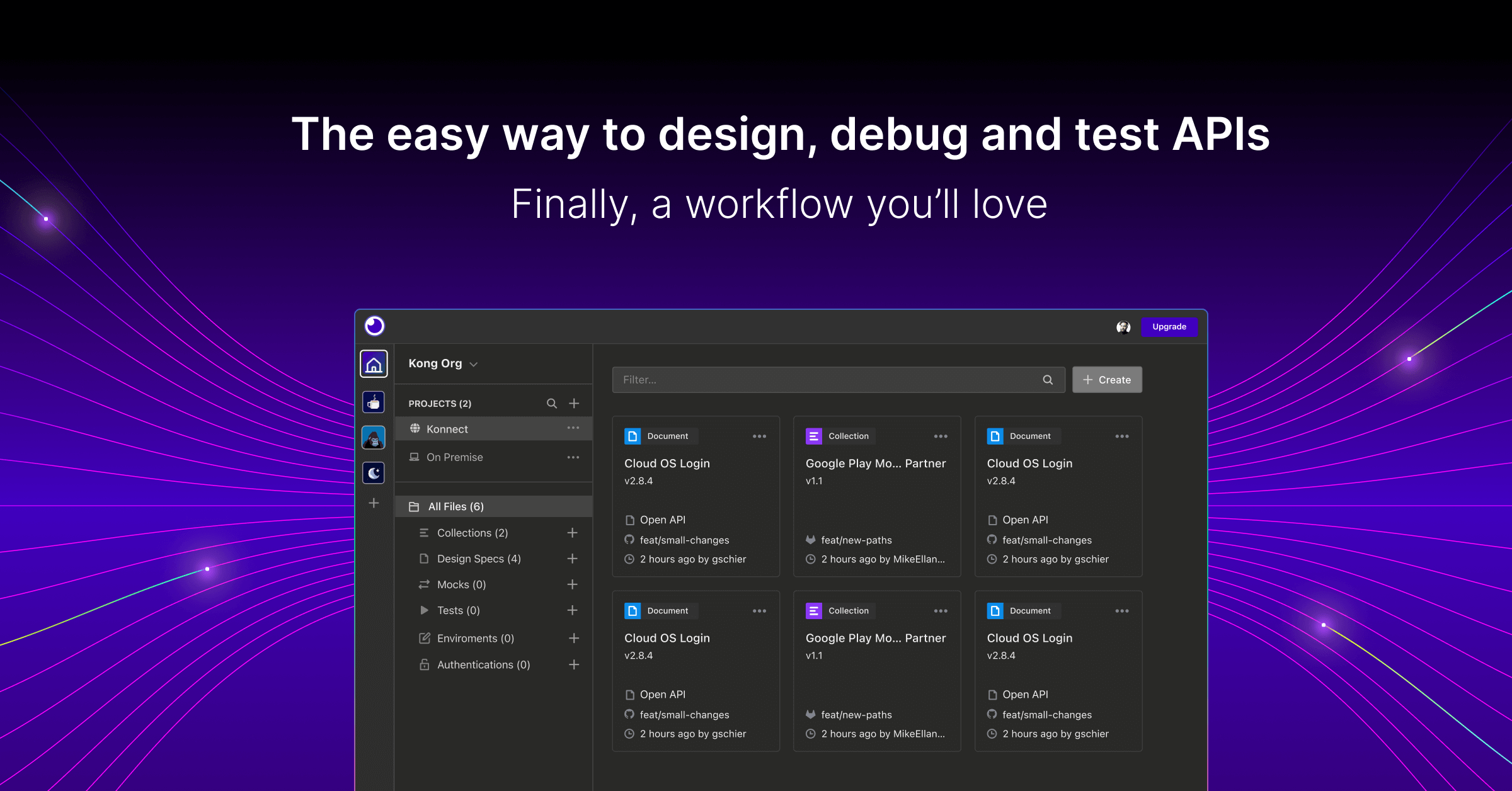
Visit the Insomnia pricing website and select the free monthly plan.
Step 2 - Select Login Method

You will then be prompted to select the login method of your choice. Select your favored choice to proceed.
Step 3 - Download Insomnia Application

Next, you can download the Insomnia application by pressing the button as shown in the image above.
Step 4 - Open the Insomnia Application and Press New Document

Once you are on the Insomnia application's main page, locate the New Document button and press it, as shown in the image above.
Step 5 - Start Creating API Documentation

All you have to do is populate your API documentation with the relevant data. You may choose to design your API while creating the corresponding API documentation, or perhaps import existing OpenAPI documentation to speed your API development processes.

Apidog - Automatically Generate API Documentation as You Design
An API tool that simultaneously prepares your API documentation can save you hours of work. With Apidog, an all-in-one API development platform, you can build, test, mock, and document APIs within a single application!


The sections below will highlight how you can utilize Apidog to generate effective API documentation for your API's consumers effortlessly.
Creating Additional API Response Codes for existing APIs using Apidog
Apidog empowers you to design a wider range of API responses, anticipating various scenarios that might arise during client-server interactions. Since unforeseen errors can happen, Apidog allows you to pinpoint the source of the issue (client or server) by crafting informative responses. This clarity helps developers deliver solutions swiftly, irrespective of who caused the problem.
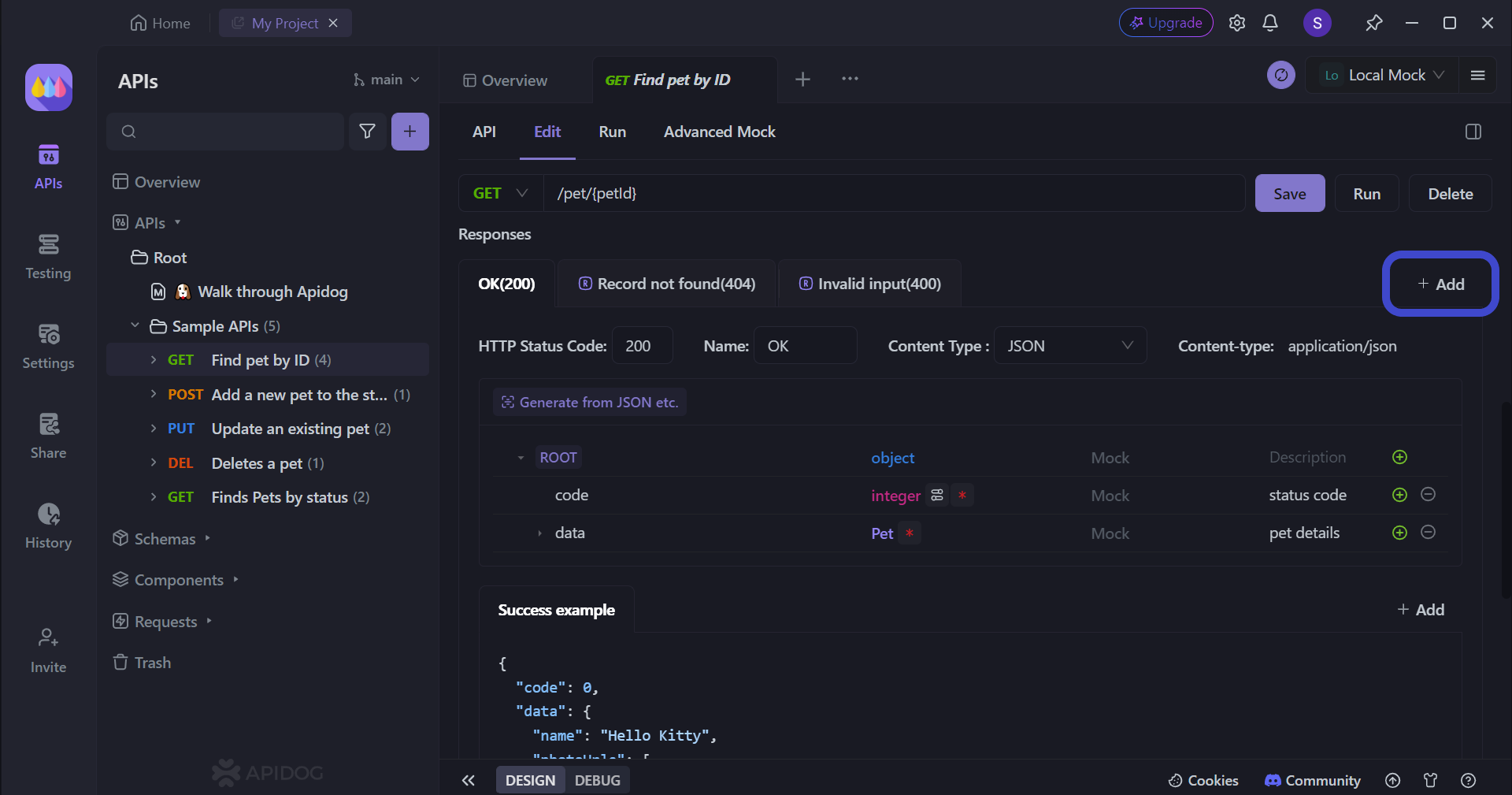
Firstly, locate this + Add button on the same row as the API response code headers.
For this example, choose Add Blank Response, which should lead you to this pop-up:
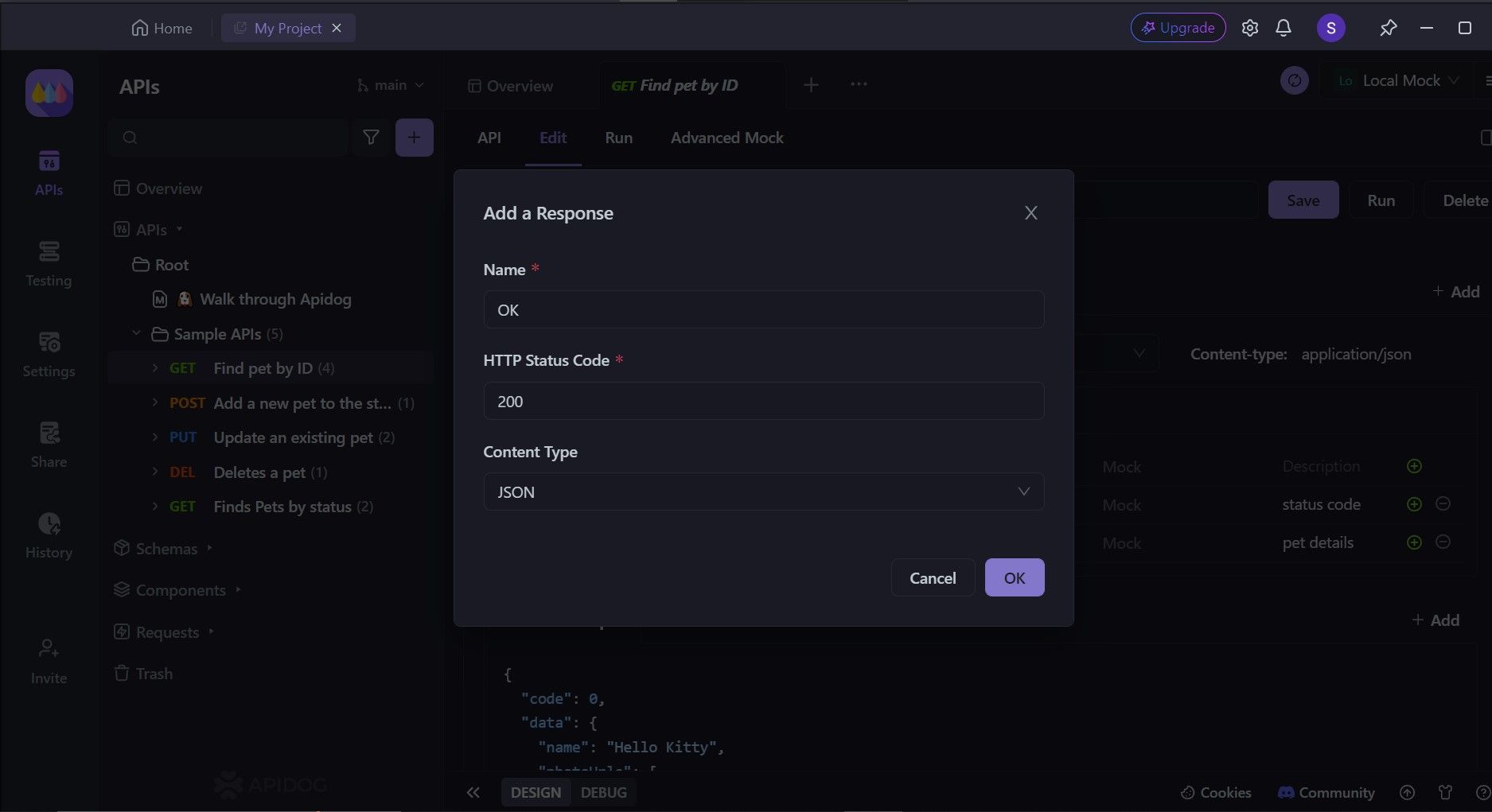
This step involves giving your response a clear and informative name, along with an appropriate HTTP status code. Refer to the provided response code examples for inspiration.
Remember, both the name and code should be easy to understand. Choose wisely!
Generate Beautiful API Documentation Within a Few Clicks
Within a few clicks of your mouse, you can automatically generate corresponding API documentation for developers interested in your API.
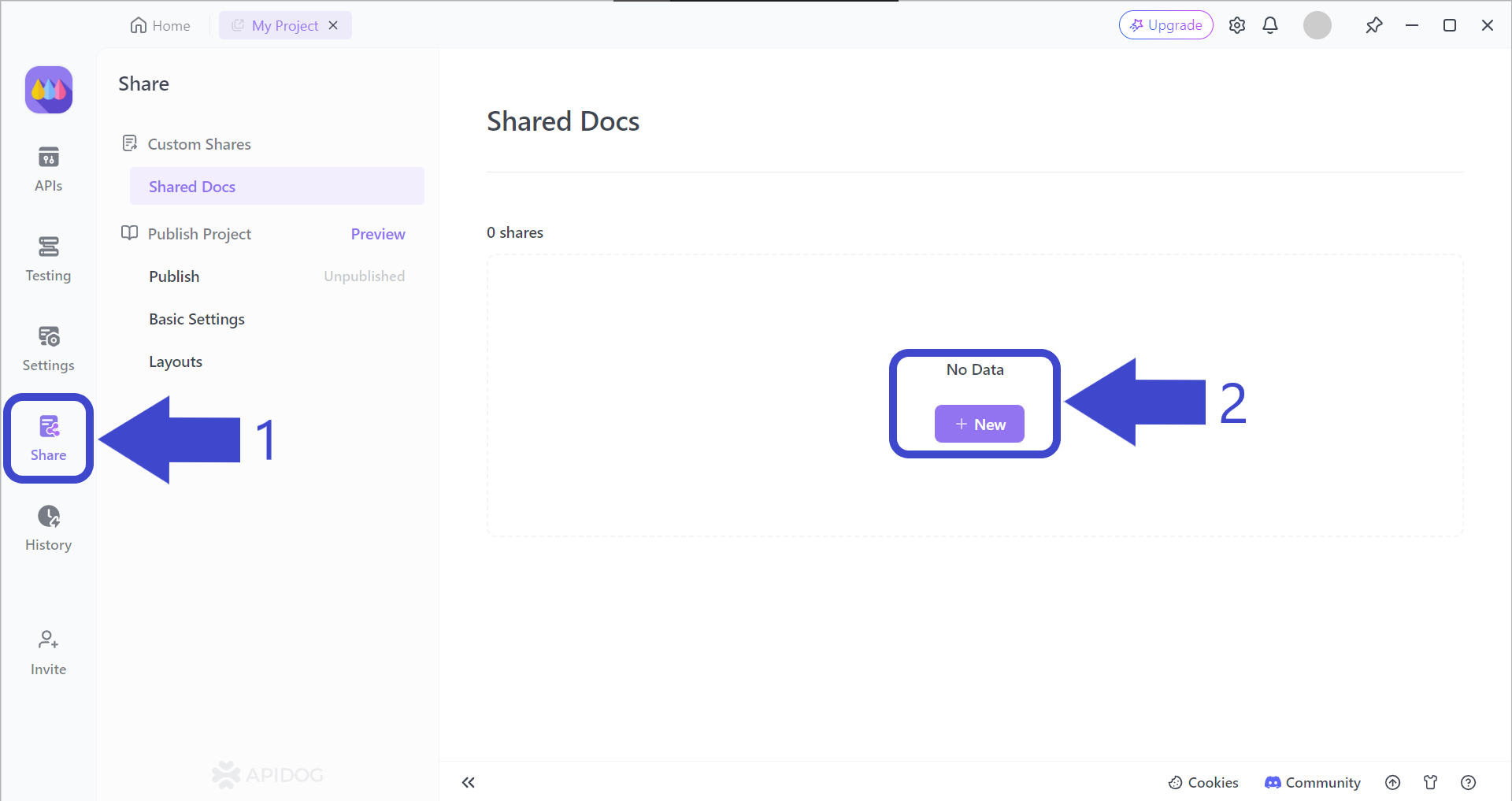
Arrow 1 - First, press the Share button on the left side of the Apidog app window. You should then be able to see the Shared Docs page, which should be empty.
Arrow 2 - Press the + New button under No Data to begin creating your very first Apidog API documentation.
Select and Include Important API Documentation
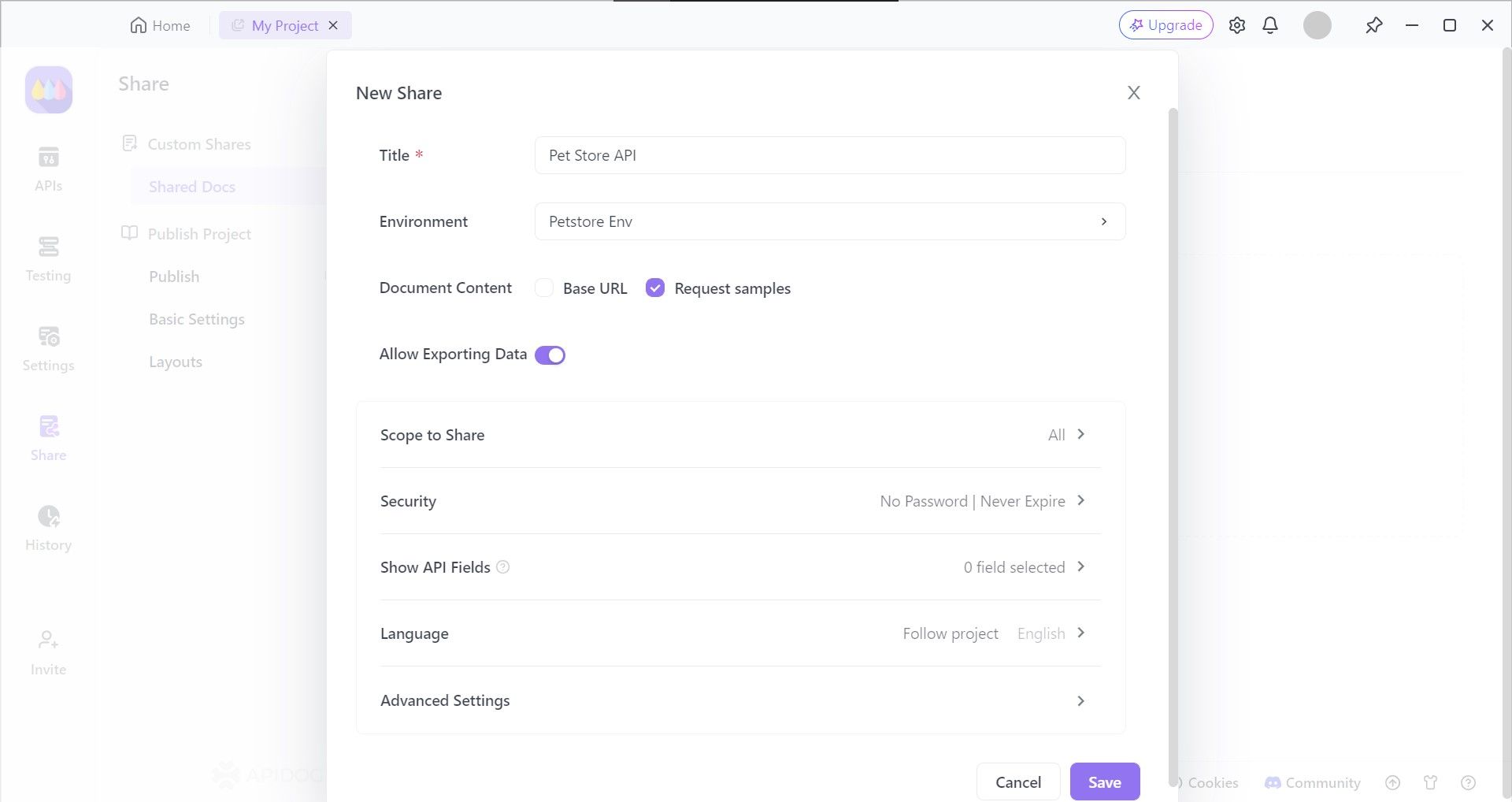
Apidog allows developers to choose the API documentation characteristics, such as who can view your API documentation and setting a file password, so only chosen individuals or organizations can view it.
View or Share the API Documentation
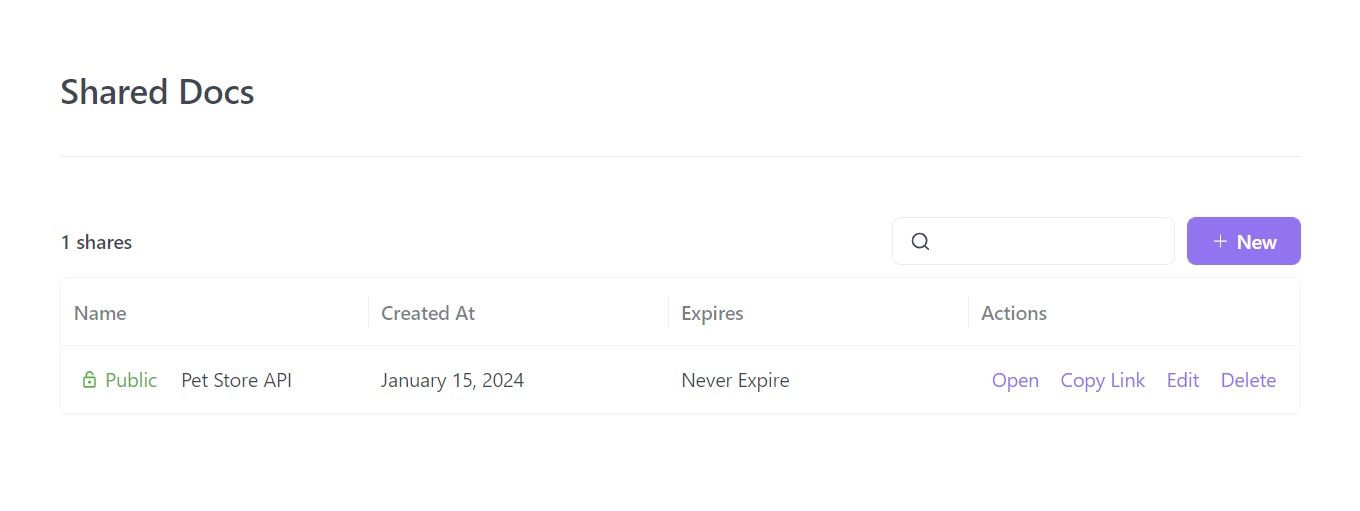
Now that the API reference is complete, it is up to you to decide which third party you want to distribute your API reference to. Apidog does not pose any time limit or expiry on the API reference you make, so take your time!
If more details are required on how to create API references with Apidog, you can refer to this article on how to generate API documentation using Apidog.
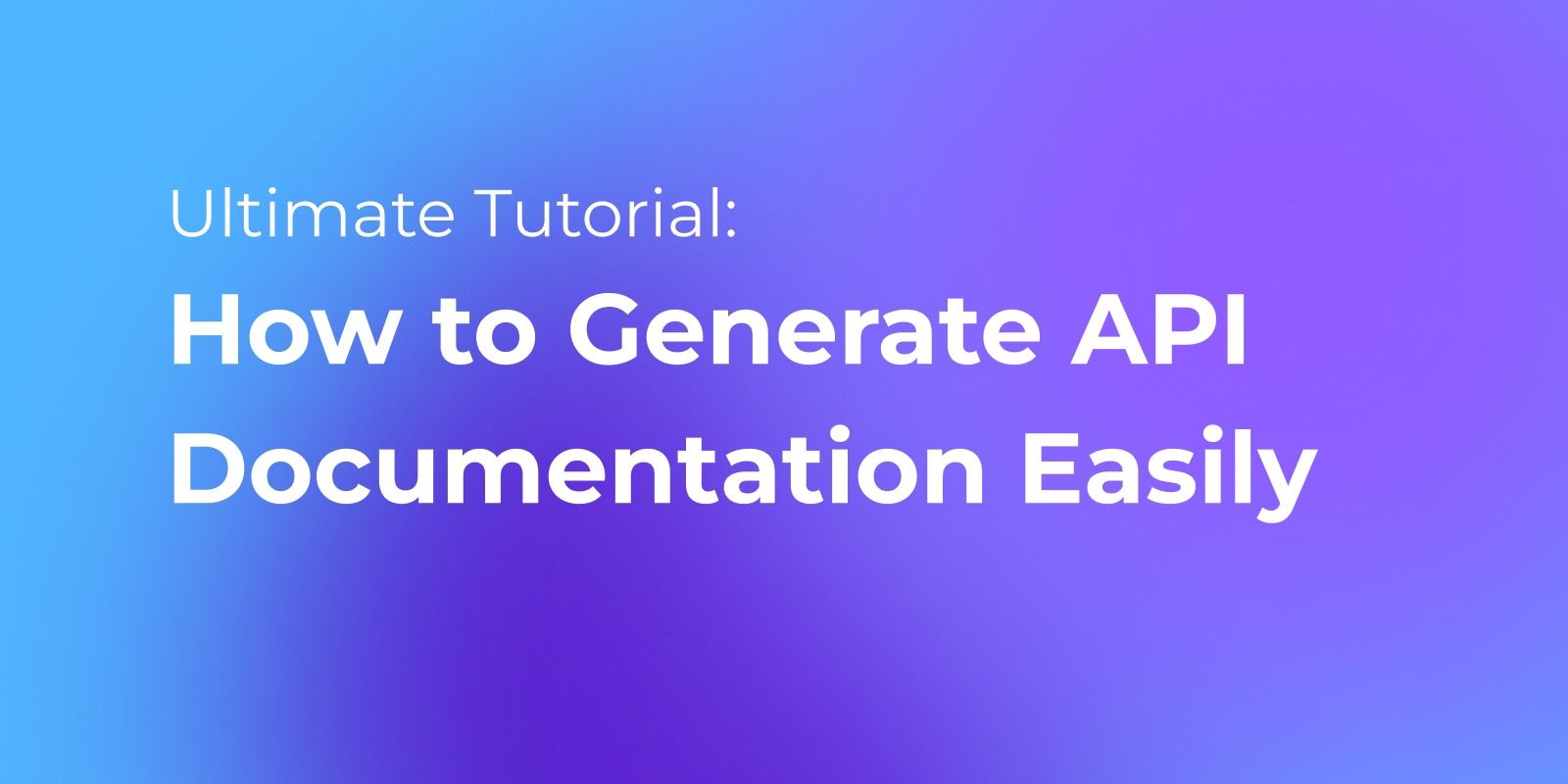
Conclusion
Insomnia's API documentation feature empowers developers to bridge the communication gap between API creators and consumers. By leveraging its functionalities, developers can craft informative and well-structured documentation, detailing API functionalities, request formats, and expected responses. This clarity fosters a smoother development experience, minimizing confusion and accelerating integration efforts.
Ultimately, Insomnia's API documentation tools ensure that APIs are functional and well-understood, promoting efficient collaboration and a more streamlined development workflow.pen_spark




